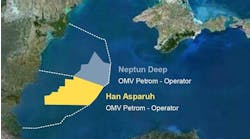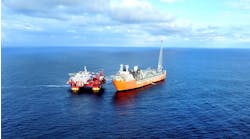Offshore staff
OSLO, Norway – Exploration offshore Norway has contracted following recent global developments, according to the Norwegian Petroleum Directorate (NPD).
Production will be maintained for the time being, but at the same time, operators have announced or initiated measures that could have long-term consequences for overall resource extraction across the Norwegian shelf.
Norway’s oil and gas industry, like others, has responded with reduced staffing levels on offshore installations, with non-essential crew sent to shore. Some projects have been halted or put on hold, and planned shutdowns have been postponed.
This is all part of a concerted effort to reduce the risk of corona infection on the installations and ensure that the fields continue to produce, the NPD said.
“At the same time, the industry has announced and initiated a number of measures, and we can already see that this is affecting activity on the Norwegian shelf,” said director general Ingrid Solberg.
“Substantial cost cuts have been announced, reducing both exploration activity, investments, and operating costs moving forward.
“We’re following the development closely, with a view toward understanding the potential resource consequences of delays and cancellations. We are paying special attention to activities we consider to be time-critical, meaning activities where delays could entail loss of resources, not merely deferred production.”
At present there is uncertainty over which activities will be canceled or postponed over the next few months, she added.
In January of this year, there were plans for around 50 exploration wells. “What we're seeing now, is both exploration wells being postponed and delays/cancellations of geophysical mapping,” Solberg said.
“As of today, it appears that around 10 exploration wells will be postponed, meaning that there will be about 40 exploration wells in 2020. However, we can’t rule out further changes in this area in the future.”
Development of time-critical discoveries could also be at risk if these are not developed within a given timeframe. Beyond that point there is a risk of reservoir pressure decline affecting some discoveries due to production from nearby reservoirs.
“On fields in operation, we’re seeing wells being postponed due to the low oil price and/or because staffing offshore is reduced due to the corona situation,” Solberg said. “There is a risk of several of these wells not being drilled later, which could mean a risk of losing resources.”
And cost cuts could put a stop to other projects aimed at improving recovery.
Another challenge over the short term will be Norway’s offshore labor market. The various postponements of all types of offshore activity will impact jobs with potentially serious consequences for the supply industry.
Also, staffing reductions could lead highly qualified personnel or those with cutting-edge skills to seek work in other industries.
“Here the oil companies should balance consideration for their own cash flow with the need to have a viable supplier industry – even when this is over,” Sølvberg suggested.
“It takes time to build a viable supplier industry, but it is very quickly dismantled. This will happen if workers in the supplier industry have transferred to other industries by the time this is over.
“A substantial drop in activity will also have an important impact as regards recruiting younger employees to the industry in the future. Last autumn, we saw the beginnings of an increase in the number of applications to petroleum-related subjects for the first time since the last oil price drop in 2014. This crisis could stop all that.”
04/09/2020



